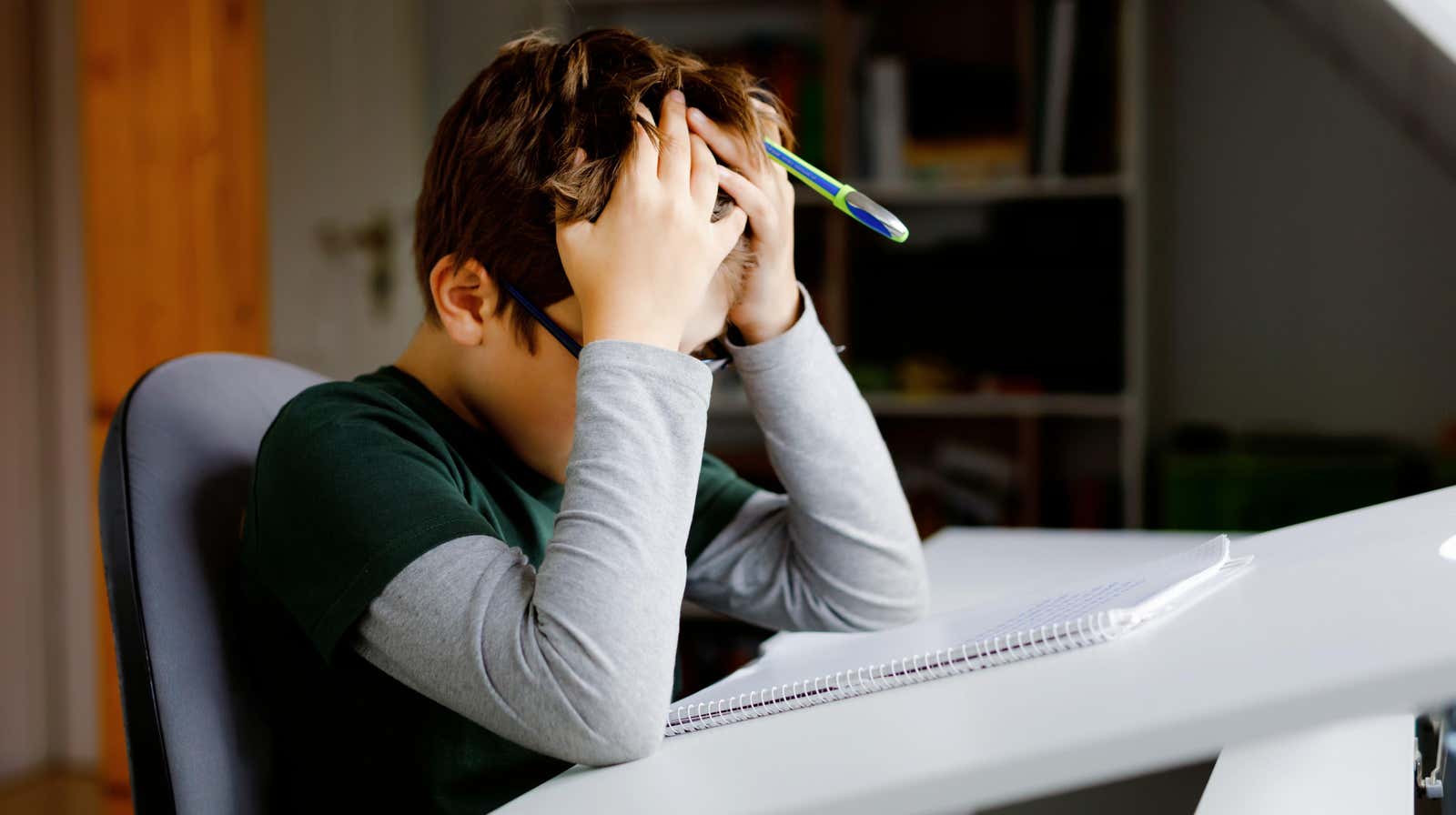Your Child May Actually Have a Math Learning Disorder

Maybe your child hates math. Maybe you did it too when you were a kid, or you were so worried about math tests that you had panic attacks. While some children struggle with math, there are those who have a real learning disability in math called dyscalculia . We look at the signs of dyscalculia, how to make a diagnosis, and what to do if your child has it.
Signs of learning disabilities in mathematics
While math is a challenge for many kids, and as the curriculum has moved from “the way we were taught” to “new math”, a common core curriculum, it’s often difficult for parents to help with math at home. However, some signs of a math learning disorder include:
- Count on fingers after peers started counting in their heads
- Inability to remember mathematical facts (such as multiplication tables or confusing addition and subtraction)
- Difficulty applying mathematical concepts to real life (money, amount of food left, etc.)
- I often get lost
- Trouble connecting symbols to corresponding numbers or reading graphs and charts
- Difficulty writing numbers or mathematical symbols correctly or in order
- Difficulty sorting items by type (size, shape, etc.)
- Failure to tell time
- Math avoidance or anxiety
If your child checks more than one of these boxes, they may fall behind in math, which is a common occurrence after the pandemic. However, they may have dyscalculia, a mathematical disorder that makes it difficult to process mathematical information.
“Independent math disorders are less common than reading, writing, or language disorders, but they do exist,” says Paulette Selman, a school psychologist who frequently tests students for information processing disorders and also works as a special education advocate in Oregon and Washington . It’s less studied and diagnosed than dyslexia, its reading equivalent, but researchers suggest it could be just as common as they learn more about it and how the brain processes math concepts.
Diagnosis
Dyscalculia is becoming more and more known, but it is still less likely to be detected in your school. You can report your concerns to your child’s teacher or school counselor and ask for an evaluation. If they find something, you can leave from there.
You may also need to have a private assessment with a neuropsychologist. These are often partially covered by insurance, but can be expensive. Selman says: “Many data processing problems can affect math — problems with working memory, executive functions, visuospatial problems, long-term memory, etc. So if math is a problem, there is probably an underlying problem that is also affecting to other things. like organization or attention. She recommends: “If your child is diagnosed or identified with a math or reading disorder, report it to the school. The school may need to conduct additional testing to determine the impact of the data processing issue and determine if they are eligible for special education services.” The bottom line is that if dyscalculia is present, another diagnosis is often also present, such as dyslexia or ADHD .
School supports
Your child may or may not be eligible for special education services with a diagnosis of dyscalculia. Selman says, “Some children with processing disabilities who are really smart may not qualify for school services if their grades and test scores are barely affected.” If they have problems in school, they may be eligible for a 504 or Individualized Education Plan (IEP) .
Dyscalculia is listed in the DSM-5 , a document that lists mental health conditions, and is often the deciding factor in determining which diagnosis qualifies for special education services. If you’re not sure if your child needs or qualifies for support, talk to the school or find an attorney in your area, as special education laws vary by state.
Ways to help around the house
Helping any child with math at home is often challenging, full of pitfalls and pitfalls. However, there are many resources available for parents of children with dyscalculia. Or you can outsource and hire a private tutor. It’s a good idea to find someone with experience and training with dyscalculia and experience with children your child’s age.
This article from ADDitude has a great list of all kinds of school, home and work gadgets, but those that parents can use at home include pointing out math in the world whenever possible, games including math , help with homework and time. management, and try to be understanding, even if you don’t struggle with math yourself.